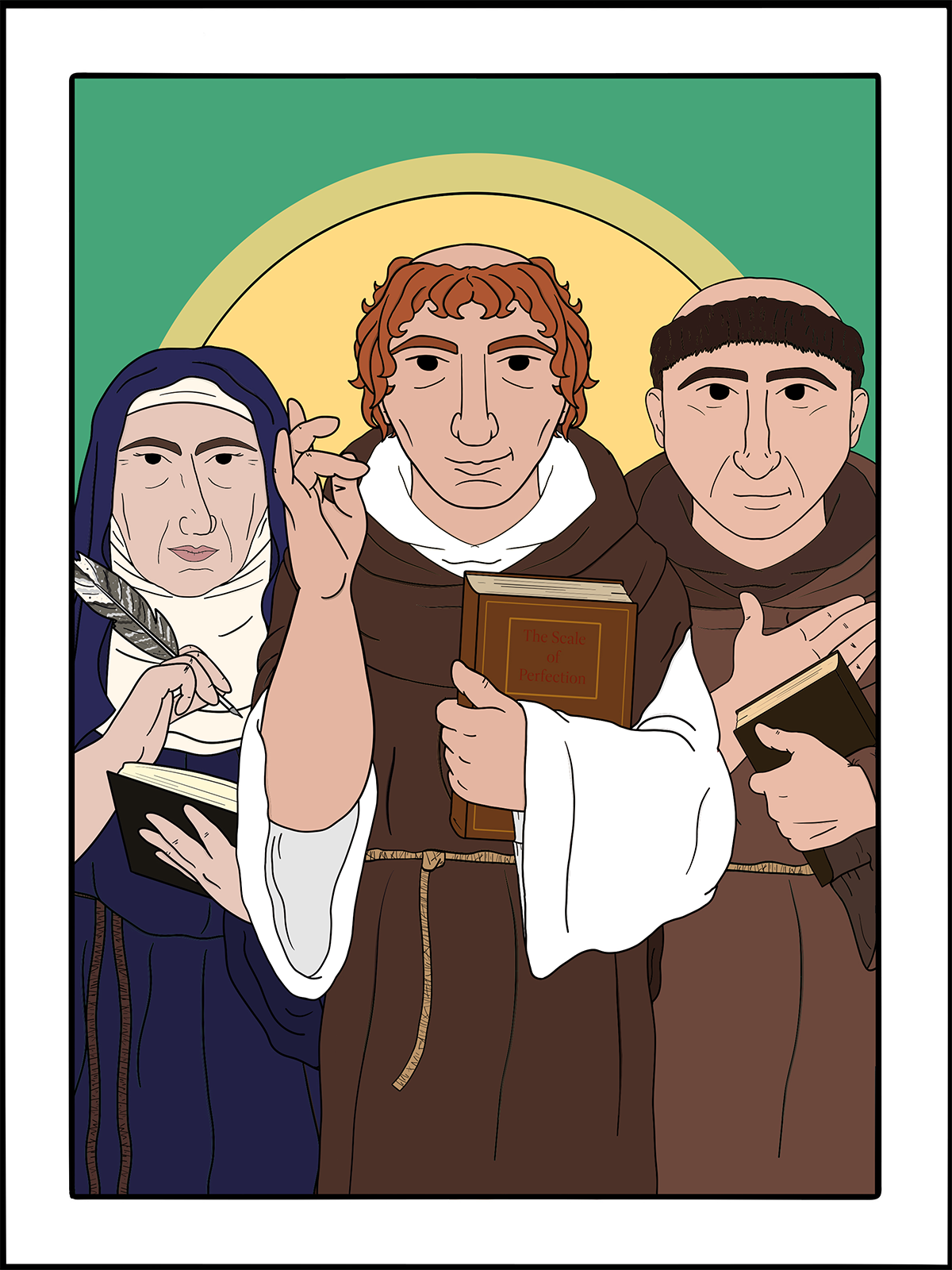
November 9
Richard Rolle, Walter Hilton, and Margery Kempe
Mystics, 1349, 1396, and 1440
art by Rev. Kirsten Kohr of Geneva, OhioDirect our hearts, O Gracious God, and inspire our minds; that like your servants Richard Rolle, Walter Hilton, and Margery Kempe, we might pass through the cloud of unknowing until we behold your glory face to face; in the Name of Jesus Christ our Lord; who with you and the Holy Spirit lives and reigns, one God, for ever and ever. Amen.
Richard Rolle, Walter Hilton, and Margery Kempe were three prominent figures associated with the development of Christian mysticism in England.
Richard Rolle, born in 1290, was an English hermit about whose early life we know little. Although he grew up in a poor farming family, he was sponsored for education at Oxford by the Archdeacon of Durham. At the age of 18, however, he dropped out of Oxford to live as a hermit, out of which grew a ministry of prayer, writing, and spiritual direction. His writings were among the most widely read works of spirituality in England in the fifteenth century and include several scriptural commentaries, some theological writings, and many poems. Rolle spent his final years near the Cistercian convent near Hampole, a village in south Yorkshire, where he served as a spiritual director for the nuns.
We likewise know little about the early life of Walter Hilton beyond his birth in 1340, but evidence suggests that he studied at Cambridge. Hilton spent time as a hermit before becoming an Augustinian canon at Thurgarton Priory in Nottinghamshire in the late fourteenth century. In his great work, The Scale of Perfection, he develops his understanding of the “luminous darkness” which marks the transition between self-love and the love of God. His writings were influential in England not only in the years leading up to the Reformation, but also during the Oxford Movement. Evelyn Underhill was greatly drawn to his works and published an updated translation of The Scale of Perfection in modern English in 1923.
Born around 1373, Margery Kempe and her husband John had at least 14 children. She seems to have had no formal education. Though illiterate, she dictated the Book of Margery Kempe, from which we learn most of our knowledge of her. A mystic who experienced intense visions, she went on pilgrimages to Canterbury, the Holy Land, and to Santiago de Compostela. She also visited Julian of Norwich and was encouraged by her. Her book describes her travels as well as her mystical experiences and her deep compassion for sinners.
These three writers of vernacular English mysticism, together with the anonymous authors of The Cloud of Unknowing and the Ancrene Wisse, all exerted a great influence on later English and Anglican spiritual writings.
Excerpted directly from “Lesser Feasts and Fasts 2022,” p. 500-501.

